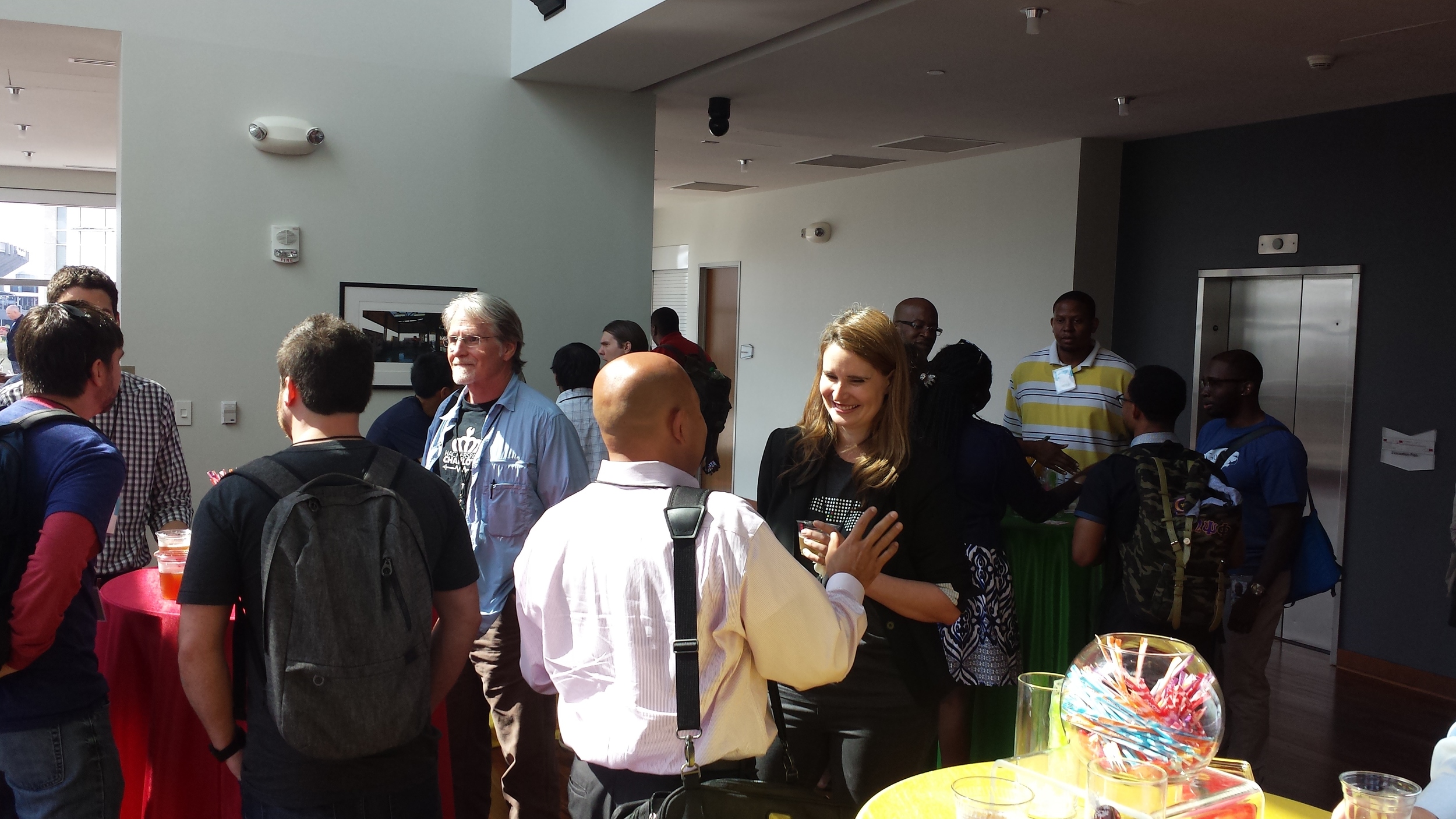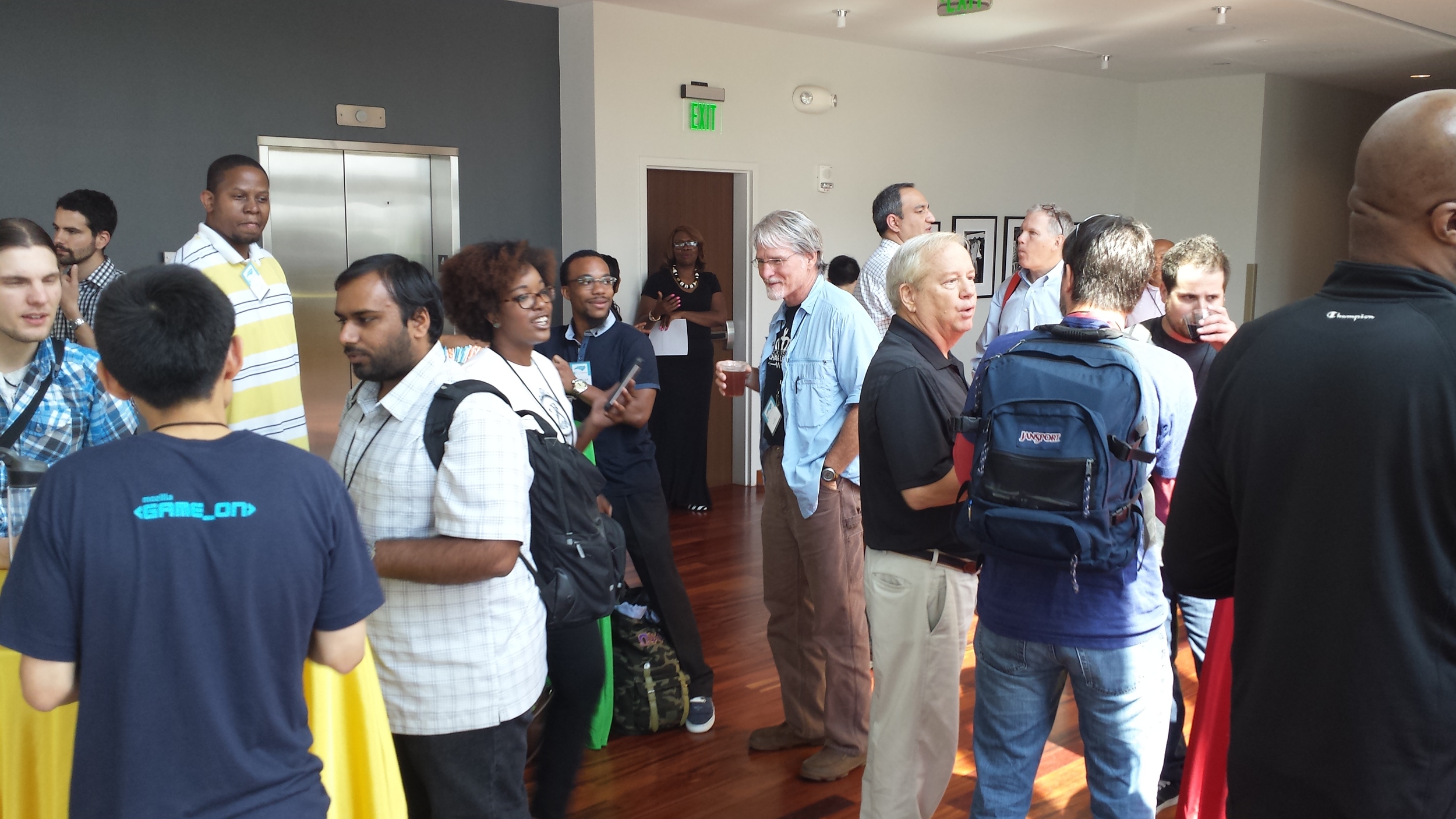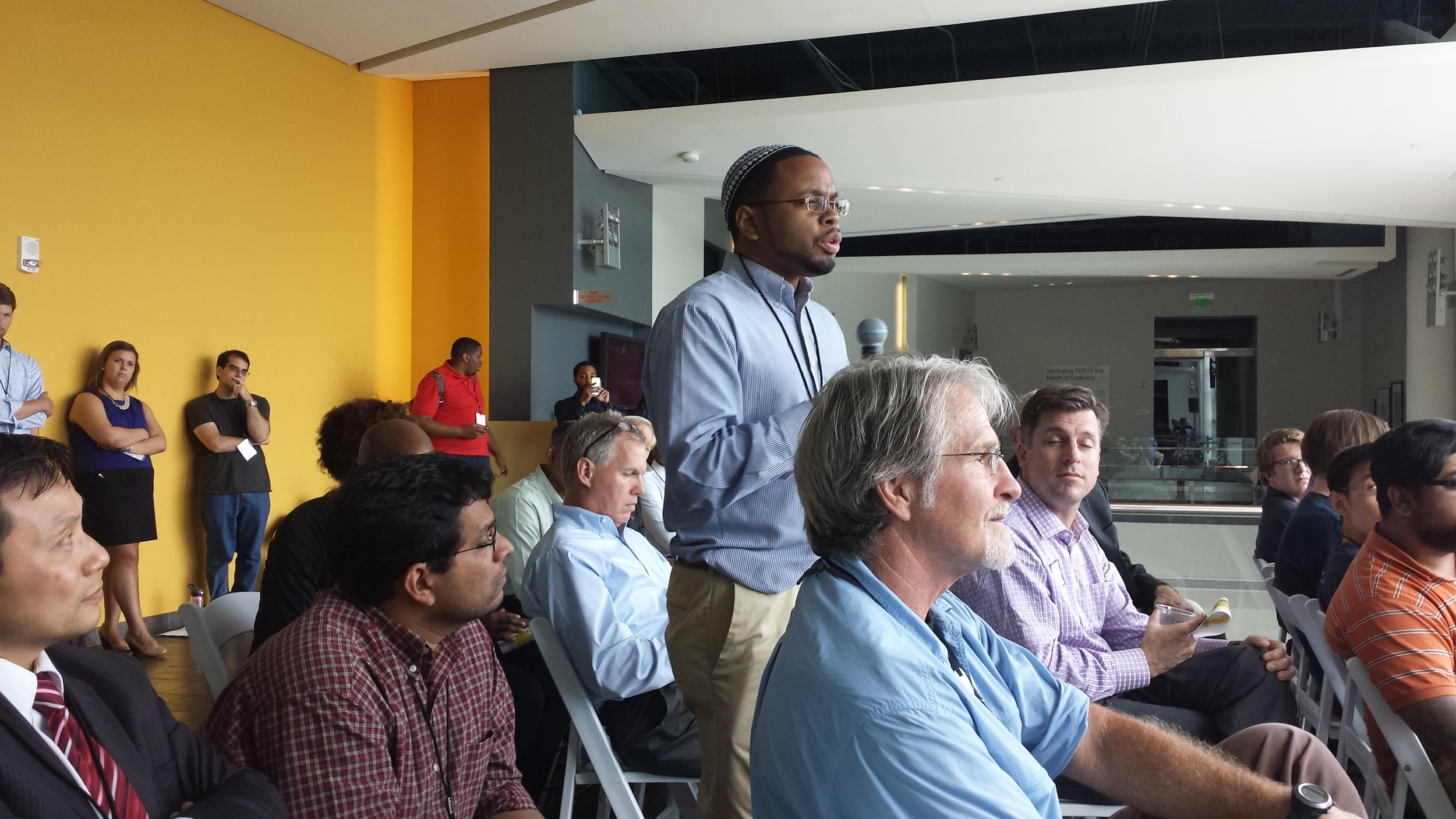Marc R. Burns - center
The following is a guest blog post from Marc R. Burns, Managing Partner, Techtheon. Marc is an avid supporter of bringing Gigabit Internet to Gaston County.
Up until recently, most businesses, of any size, have never had to consider if their network (i.e. LAN) was as fast as their Internet connection, since even 10 year old network hardware (i.e. switches, routers, wireless access points, etc.) were always faster.
Early networks (circa 1990) supported 10 megabits per second (m/s) speeds, both up & down. So even a DSL Internet connection (i.e. 6 m/s down X 0.25 m/s up) wasn't as fast as the network/LAN.
Currently, most every small business has a LAN supporting 100 m/s speeds (up & down).
Over the past 5 years, we have only deployed gigabit speed network/LAN hardware (i.e. 1,000 m/s up & down). Any PC, laptop or Mac purchased in the last 5+ years contains a gigabit network card inside. Wireless N and now Wireless A access points easily support up to 300m/s connections. (Wireless at least for the current future, will always be slower than wired. And this is even slower when you are on the cellular networks.)
My point, most businesses, small or large, are very used to how fast a file, folder, print job, scan, phone call, video, etc. goes across their network, in just fractions of a second. You "click the mouse" and it's done.
Now compare this when uploading or downloading a file from a website, email message, filling out/saving a web form, remotely accessing a computer, attending an online meeting, etc. The average user's experience of doing these kind of activities, over the Internet, is in a word "slow" or "click and wait".
Gigabit Internet brings the speed of your LAN to the web. Work with a customer, over the Internet, just like they were across the desk or the hallway from you in your office. Same when working with your fellow employees, when scattered across multiple locations (cities, states, countries) the user experience is just like you're all in the same building!
That is a power of Gigabit Internet!
















